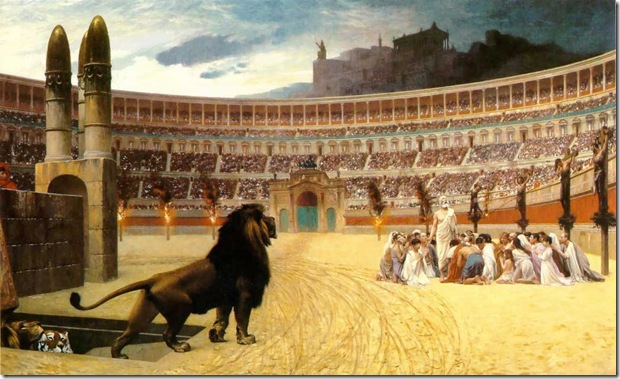The Letter to Diognetus (c. 100 – 150) was written by an unknown early Christian apologist during the time when the early Church was persecuted by the pagan Roman government. The author attacks pagan beliefs and practices as superstitious and immoral. He argues that biblical teaching is superior to pagan philosophy, because it is grounded in the divine revelation, not in human wisdom; Believers are good citizens because their moral values transcend the conventions of pagan society. For example, Christians are staunchly opposed to infanticide (exposure of infants) and adultery:
For Christians are not distinguished from the rest of humanity by country, language, or custom. For nowhere do they live in cities of their own, nor do they speak some unusual dialect, nor do they practice an eccentric life-style. This teaching of theirs has not been discovered by the thought and reflection of ingenious men, nor do they promote any human doctrine, as some do. But while they live in both Greek and barbarian cities, as each one’s lot was cast, and follow the local customs in dress and food and other aspects of life, at the same time they demonstrate the remarkable and admittedly unusual character of their own citizenship. They live in their own countries, but only as aliens; they participate in everything as citizens, and endure everything as foreigners. Every foreign country is their fatherland, and every fatherland is foreign. They marry like everyone else, and have children, but they do not expose their offspring. They share their food, but not their wives. They are “in the flesh,” but they do not live “according to the flesh.” They live on earth, but their citizenship is in heaven. They obey the established laws; indeed in their private lives they transcend the laws. They love everyone, and by everyone they are persecuted.1
![]()
Footnotes:
![]()
1 “The Epistle to Diognetus,” in The Apostolic Fathers, ed. and rev. Michael W. Holmes (Grand Rapids, MI: Baker Books, 2002), 541. In other translations see 5.1-11.





